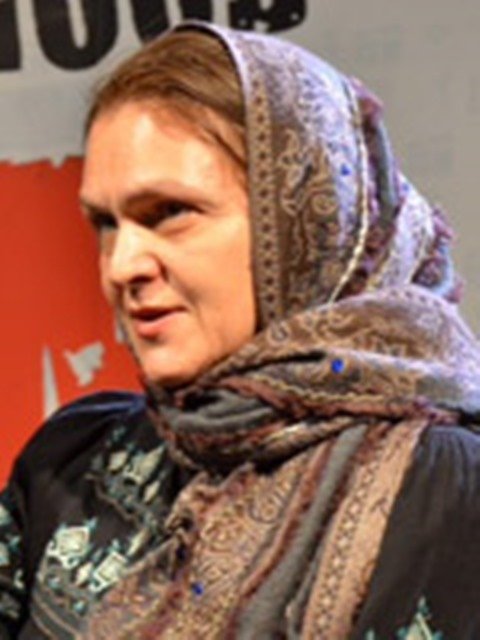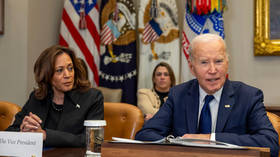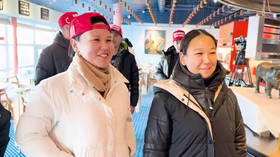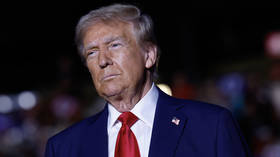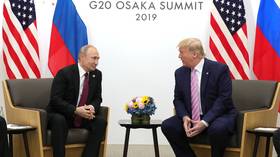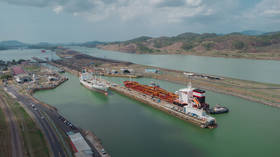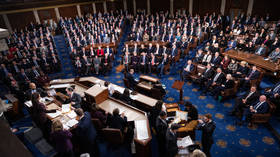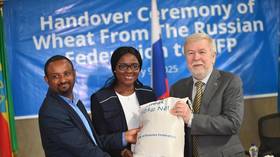Turkey: Turning mayoral elections into Armageddon rehearsal
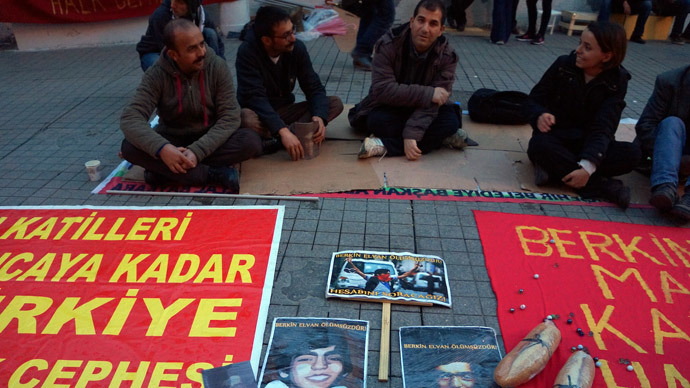
The battle between Turkish jedis is raging in the midst of pastoral Turkish life. To those who know nothing about Gülen and Erdoğan garlands of blue and orange flags of the two major parties in the streets may seem like decorations for a city festival.
On March 30, such a common affair as local elections in Turkey
will turn into a battle between two iconic characters of the XXI
century – Recep Tayyip Erdoğan and Fethullah Gülen.
None of them will be running that day, but Turkey’s future as
well as the future of the whole Middle East – the place where the
world’s destiny is determined, no matter how stilted it may sound
– depends on how many of Erdoğan’s candidates win elections.
By force of circumstances two Turks turned into symbols for whom one country is too small.
Islamism versus Americanism
Erdoğan, a NATO country leader, took the path of the Political Islam, which is called Islamism in the West and is considered to be violating rules of democracy which ordains that religion must be separated from politics. NATO and the US are fighting against this Islamism in Afghanistan and Iraq and they have been planning to fight against it in Iran for a long time.
Erdoğan strongly supported Palestinians’ struggle and
intentionally and publicly damaged his relations with Israel.
After 70 years of a strict ban he reopened the Mosques, closed
down by the Turkish reformer Kemal. He restored the right for
Turkish women to wear hijab in schools, colleges and government
institutions. It was during his time that Islamic organizations
emerged in Turkey, filling in the void left by secularization and
spreading Islamic teachings.
Gülen is a living denial of Political Islam. He is a retired
imam, a son of imam, a writer and a preacher, the founder of the
Hizmet movement, which is opening Turkish secular schools all
over the world. Generation after generation those schools produce
loyal disciples ready to work for the common cause of
enlightenment and better life.

Gülen’s followers are present in all social groups; they can be found among government officials, policemen, prosecutors, journalists and sportsmen. They are also quite numerous among Erdoğan’s people. This is not a party or a religious order, they don’t have membership cards, but they are headed towards rational pragmatism, acceptance of the world and peaceful coexistence with all the things of this world.
Gülen used to support Erdoğan. But after the episode with the “Freedom Flotilla” he stopped supporting him, and lately their relations turned into a direct confrontation.
Gülen has been living in the US since 1999. He has strong
political ties there. Gülen supports NATO, the USA and Israel.
Shortly before the elections he cursed Erdoğan though he never
mentioned his name in his address. And, according to many of
Erdoğan’s followers, he is responsible for all the anti-Erdoğan
scandals and media leaks before the elections.
Erdoğan called Gülen’s followers “a parallel state” and
promised to close all their schools in Turkey.
In March, two former US ambassadors to Turkey Morton Abramowits and Eric Edelman published a report which sounds more like a threat. In their report they predicted that Turkey and Erdoğan will collapse and a coup will happen, if Erdoğan continues to persecute Gülen’s followers.
There is no doubt that these threats, coming from people close to neocons, are not just an emotional reaction from disgruntled officials. Turkey is flooded with Syrian refugees and militants, many of whom are directly linked to US intelligence agencies.
As one of Erdogan’s followers pointed out, groups of Syrian militants have been increasingly active inside Turkey, inciting conflict.
For example, on Thursday, March 27, members of the Islamic State of Iraq and the Levant (ISIL) opened fire on police in Ümraniye, leaving three officers wounded. ISIL is one of the groups fighting against both Assad and rebels in Syria.
The relationship between Erdogan and Putin, on the other hand, seems to be developing in a totally different vein. In 2012, Erdogan thanked Putin for supporting Palestine in its bid for observer status in the UN.
In March alone, Erdogan and Putin talked twice because of the Ukrainian events, including one time on the day of the Crimean referendum. Erdogan asked Putin to take care of Crimean Tatars along with ethnic Russians in Crimea. Moscow responded by promising that the Tatars’ rights won’t be infringed. In April Turkish Airlines plans to renew regular flights to Crimea.

Rehearsal for disorder?
In 2008, Foreign Policy called Gülen the world’s most powerful intellectual of the year. In 2013, Time included him into the top 100 most influential persons.
The global media appear to have chosen to side with Gülen, and in doing so they basically follow Gülen’s own rhetoric. Erdoğan is presented as a “dictator” and is denounced for trying to cut off public access to Twitter and Youtube. At the same time, the media have devoted much less attention to General Sisi who has sentenced to death 529 people in Egypt. The intensity of the media coverage looks to suggest that choosing from these two, cutting off Twitter is a sure sign of a tyrant.
“Erdoğan needs 38% to win, and he will make it, he is supported by half the country, by all rural residents,” – says a bright 22-year-old from İskenderun. This young man sleeps 2 hours a day, he’s been working since he was 12, he is currently in college, learning English, and dreaming of making it to a university. He is one of Erdoğan’s new active and pro-education generation.
“Erdoğan will win. I support him, and all my friends and
classmates too, he has fresh ideas and people understand him,”
- these are the main messages voiced by many.
All sorts of public polls surface in the media, but I haven’t
seen 38% mentioned anywhere.
You could say that the more figures make it to the public domain
in Turkey, the more unreliable they start to look.
Erdoğan’s supporters in the media believe that 45% will secure
his win.

Erdoğan’s opponents are professing that Turkey has had enough of both the Prime Minister and his AKP, that the party’s ratings went down to 42% while the opponent’s party ratings have gone up to 42.5%…
The only thing these figures could actually be telling is that the anti-Erdoğan coalition will try to create a disturbance right after the election.
And the costume rehearsal of this post-election disturbance is
already going on.
Here, a group of men dressed in judges' robes walks up and down
Istanbul’s Istiklal Street making a visual statement that what
the future holds for Erdoğan is a court trial rather than
presidential office.
Another group is sitting on the ground with a photo of the 15-year-old Berkin Elvan who died in hospital from the injuries he sustained during a demonstration crack-down.
A young man taking a picture of this gathering remarks: “Of
course the loss of life is tragic, but you know who mourns him? –
Those who spit with him on the mosque floor, or drank beer with
him in a mosque.”
A few steps away, the protesters are layout out their leaflets on
the pavement, with a crowd of journalists watching right across
and a police crew in full gear nearby. Everyone is doing what
they do.
Every now and then, groups of about 20 - school students,
activists – walk by shouting anti- Erdoğan slogans and disappear
in the crowd.
The main battle will take place in Istanbul, a city that is home
to a quarter of the country’s population.
The incumbent mayor, the A.K.P.'s Kadir Topbaş is running against
Republican People’s Party’s mayoral candidate Mustafa Sarıgül,
head of Istanbul’s most affluent and non-Muslim district Sisli.
Sarıgül made himself memorable for his statement following the
Israeli attack on the Freedom Flotilla which left 9 Turkish
citizens dead and over 30 wounded, “We lost Israel’s
trust.”

Sarıgül is making a promise to build a monument to the
“martyrs of democracy” i.e. the victims of the police
crackdown on the protests in 2013.
Different sources place Topbaş 7% to 9% ahead of Sarıgül.
However, the media keeps predicting a failure for Erdoğan in
Istanbul. And it is known that whoever loses the Istanbul
election loses the nation-wide election…
A total of 52, 965, 831 voters are expected to turn up at 194, 310 voting stations. The candidates represent a total of 26 political parties.
Erdoğan’s ruling party is the Justice and Development Party (AKP). Its main opponents are the Republican People’s party (CHP) and the National Action Party (MHP).
Two Turkish men from Anatolia, one young and one old, seem to be equally displeased with the prime minister: “We never voted for Erdoğan, and we hate him. When he started out he had nothing, and now he’s got it too sweet.”
Some of the Erdoğan opponents try to give a more detailed argument.
A 46-year-old Kurd from nearby Diyarbakir who had been to the Gezi Park protests together with his son, says: “Erdoğan is telling everyone that the Gezi Park protests were all staged and orchestrated, but I went there of my own will, no one had asked me to. Erdoğan owns 9 TV channels and most of the newspapers, so journalists cannot write anything against him unless they want to lose a job.”
A shop owner from Edirne, 39:
“Erdoğan will go, his time is over, he’s up to his ears in
dirty business. It makes me furious when he dares say the name of
Allah and then talks about money. I am a Muslim, but I do not
want the rule of the Sharia law. If we had the rule of the Sharia
law in place, Erdoğan would have had both his hands cut off. If
Kemal had been alive he would have destroyed Erdoğan physically,
not just politically.”
“I am no fan of Gülen either, he is even more of a
fundamentalist. I want a secular state; Turkey needs the
government to make domestic issues a priority over foreign
relations. Look what he did – he’s trying to engage in the Syrian
crisis, all the while there are loads of unsolved problems at
home. That’s no way to do it,” - says a taxi driver, 49, a
native of Izmir.
Soon the people will make their choice and we will know what they
consider the lesser evil, legalized invasion of privacy or no
access to Twitter.
The statements, views and opinions expressed in this column are solely those of the author and do not necessarily represent those of RT.
The statements, views and opinions expressed in this column are solely those of the author and do not necessarily represent those of RT.
